2022 NAEd/SPENCER RESEARCH DEVELOPMENT AWARDEES
Dionne Champion, University of Florida
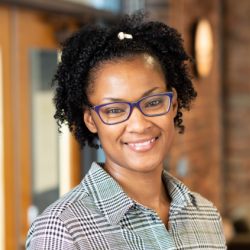
Dionne N. Champion is a Research Assistant Professor in the Center for Arts in Medicine at the University of Florida. Her research focuses on the design and ethnographic study of learning environments that blend STEM and creative embodied learning activities, particularly for youth who have experienced feelings of marginalization in STEM education settings (e.g. African Americans, girls). She is interested in understanding the ways these populations draw on their everyday practices and use their bodies as resources for learning and identity development. Dr. Champion is an engineer, dancer, arts educator, and learning scientist. She received her Ph.D. in Learning Sciences (2018) from the School of Education and Social Policy at Northwestern University, her M.Ed. in Dance from Temple University, and her B.S. in Chemical Engineering from Florida A&M University. She was a Postdoctoral Fellow and Research Scientist at TERC. Dr. Champion is developing a research program that interrogates and complicates the ways we think about sense-making, particularly within informal learning environments where STEM is not just STEM, movement can be more than “just” movement, and the pathways to understanding are not linear, normative, or even always predictable. Through her work, which has been supported by the National Science Foundation and the Andrew K. Mellon Foundation and published in the Journal of the Learning Sciences and the Journal of Information and Learning Sciences, she seeks to construct broader conceptualizations of cognition that substantively intertwine STEM learning and development, attending to the affective, social, and emotional while broadening STEM knowledge and understanding.
STEM/Arts Integration for Radical Healing in Black Youth: An Equity-Oriented Study of the Transformative Power of STEM and the Arts
The proposed project is an ethnographic video analysis of informal embodied arts-STEM integrated activities that support STEM learning for Black youth through culturally sustaining practices. This work seeks to understand how arts-integrated approaches to STEM teaching and learning create space for radical healing, the healing of racial trauma and development of positive associations with STEM that are rooted in positive associations of self. In this project, I will analyze video of activities and interviews from three different STEM/arts programs to identify aspects of learning in culturally sustaining arts-integrated STEM environments that align with the elements of the radical healing framework. Using existing data sets from three past projects, I will engage in micro-ethnographic analysis of activity and participation structures, attending to facilitator and youth talk, actions, and interactions as they participate in creative embodied sense-making activities. I will utilize that analysis to design and pilot a new set of activities that foreground these elements and analyze that data to develop a set of design principles for radical healing through STEM/arts integration. This work will contribute a new theory for studying informal arts-integrated STEM spaces that attends to well-being and the development of STEM-positive cultural identities for Black (minoritized) youth learners.
Alexandra Freidus, University of Connecticut
Alexandra Freidus is an Assistant Professor of Educational Leadership at the University of Connecticut. An educational ethnographer, Alex uses sociocultural and critical race theory to ask what roles educators, policymakers, families, and young people play in sustaining and interrupting racialized patterns in K-12 schools. Using data collected through participant-observation, interviews, and public archives, she examines how community stakeholders conceptualize student diversity; how school and district administrators enact educational policy; and how these interlocking contexts relate to schools’ central work – teaching and learning. Recent research includes studies of diversifying schools in gentrifying neighborhoods and teen activists for school integration in New York City. Alex’s work has been funded by a National Academy of Education/Spencer Foundation dissertation fellowship and published in journals including American Educational Research Journal, Harvard Educational Review, Teachers College Record, Educational Policy, and Anthropology and Education Quarterly.
Alex’s research and teaching are informed by thirteen years of experience as a high school teacher, professional development facilitator, and school reform support provider in the Bay Area and New York City. Alex earned her Ph.D. in Teaching and Learning at New York University, her M.A. in Education from Mills College, and her B.A. in History from Brown University.
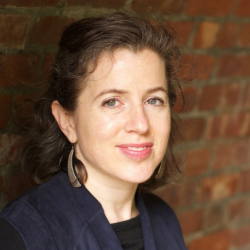
Young People as Policy Actors: School Integration and Diversity Dilemmas in New York City
A growing body of research examines how administrators, educators, and families have shaped educational policy and practice related to school integration, school gentrification, and student diversity. In this project, I propose to closely examine the experiences and perceptions of the young people most impacted by these policies and practices. I ask: How can young people’s experiences as students and activists help us understand about what diversity can and cannot offer communities seeking greater educational justice? What – and who – is integration for? How can policies, practices, and pedagogies address both the costs and benefits of diversity? To answer these questions, I examine the roles students play as policy actors, identifying the ways young New Yorkers navigate and resist racialized inequality in school and community settings. Using ethnographic data related to a young people’s campaign for school integration and longitudinal interviews with a sample of participants from this study, I will develop a book project that examines the opportunities and limits that school diversity offers movements for educational justice.
Emily Masghati, Penn State Behrend
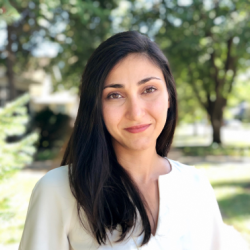
Emily Masghati will be an Assistant Professor of History at Penn State Behrend in Erie, PA, beginning in the Fall of 2022. Her research specializes in the history of foundation philanthropy, examining its influence on higher education and African American intellectual history. She is especially interested in how mechanisms of exclusion have been constructed and reified in the academy. Her manuscript, tentatively titled “The Rosenwald Generation: The Fellowship Program that Changed America,” traces the cohort of social scientists sponsored by the Julius Rosenwald Fund, which ran an expansive fellowship program for African American intellectuals from 1928 to 1949, the first of its kind. The monograph seeks to shed new light on the processes by which paternalistic promotion and strategic denial functioned as two sides of the same coin, with lasting consequences.
Masghati earned her M.A. (2014) and Ph.D. (2019) in history from the University of Chicago. Her research has received the support of the Mellon Foundation, Duke University, Emory University, the University of Chicago, and the New York Public Library. Her work has been published in the History of Education Quarterly, and she has conducted research for several nonprofits, including the Illinois Humanities Council and the NAACP Legal Defense Fund.
The Rosenwald Generation: How the Julius Rosenwald Fund Fellowship Program Changed America
The Rosenwald Generation uncovers the racial politics of knowledge production of the Julius Rosenwald Fund fellowship program (1928-1949), the first expansive fellowship program to support Black scholars in the US. The Rosenwald Fund awarded nearly one thousand fellowships, sparking a proliferation in Black PhDs and contributing to the rise of what scholars often refer to as the “golden age” of African American social science. With evidence from archival research that engages the perspectives of both the Rosenwald officials and their fellows, the project establishes the ways that the Rosenwald officials attempted to assert an expansive jurisdiction over Black knowledge production. This research also uncovers significant evidence of the fellows’ resistance to the Fund’s ideological agenda. Weaving together these dueling perspectives, the monograph argues that for the Rosenwald Fund, elitism and ethnocentrism were mutually constitutive projects that decisively shaped the canon of mid-century race scholarship and the place of Black scholars in the American academy. There is virtually no scholarship on the Rosenwald Fund fellowship program, despite its impact on Black scholarship. Uncovering this critical chapter of education history will shed new light on the processes by which paternalistic promotion and strategic denial functioned as two sides of the same coin, with lasting consequences. The Rosenwald Generation thus reframes how scholars should read and understand mid-century race scholarship and offers new insights into how members of university communities continue to work in ways that are shaped by this history.
Federick Ngo, University of Nevada
Federick Ngo is an Assistant Professor at the University of Nevada, Las Vegas. His research examines the impact of higher education policy and practice on college access and success, with a focus on community college students. His work has examined the impact of developmental/remedial education and developmental education reforms, the persistence and attainment of marginalized and under-served students in the community college setting (e.g., undocumented students; Southeast Asian and Pacific Islander students; students with disabilities), the role of math in college access, and other topics in higher education (e.g., college rankings; college athletics). He teaches courses focused on economics, finance, and policy in higher education, comparative/international higher education, and diversity in higher education. He was formerly a high school math teacher in Oakland, California, and earned his Ph.D. in Urban Education Policy from the University of Southern California.
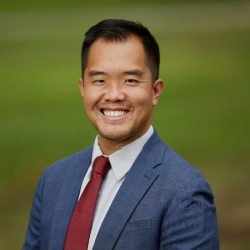
Is the Corequisite Model Improving College Student Outcomes and Reducing Inequality? Evidence from Nevada Higher Education
Postsecondary remedial/developmental education has often not worked as intended and instead exacerbated inequalities in higher education. I examine the impact of an alternative approach – the co-requisite model – where students enroll directly in college-level courses and are provided concurrent support. I focus on the state mandated co-requisite policy in Nevada, which has one of the lowest college attainment rates in the nation. I use regression discontinuity design to identify the causal effect of co-requisite placement on student outcomes, leveraging test score cutoffs that institutions use to assign students to co-requisite or standalone math and English courses. I am able to isolate the effects of the shift to the co-requisite model since these cutoffs have largely not changed and because math co-requisites have remained algebra-based. Using difference-in-difference and regression discontinuity designs, I determine if the policy is reducing inequalities in Nevada higher education, focusing on grades, persistence, and credit attainment. In addition, I examine the impact of co-requisites on math learning outcomes in a subset of institutions with common departmental exams. Subgroup analyses by race/ethnicity, gender, SES, and academic preparation allow me to identify whether the co-requisite policy is ameliorating long-standing inequities in Nevada higher education.
Emily Peterson, American University
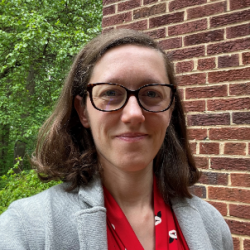
Emily Grossnickle Peterson is an Assistant Professor in the School of Education at American University, Washington, DC and an affiliate faculty member in AU’s Behavior, Cognition, and Neuroscience program. In her research, Dr. Peterson applies methods from educational psychology and cognitive neuroscience to deepen our understanding of how students engage with science with the aim of providing insights into cognitive and motivational processes that may drive educational disparities. She is especially interested in how students develop their capacity for curiosity and spatial thinking. In current and future work she is examining how motivation and motor processes impact student cognition in science, including questions such as: can students’ hand gestures during problem solving reduce cognitive load, and does feeling curious during learning change how students form mental images? Her work has been published in journals including Educational Psychology Review and Learning and Instruction, and has been supported by Division 15 (Educational Psychology) of the American Psychological Association. Dr. Peterson competed a Ph.D. in Human Development and Quantitative Methodology from the University of Maryland, College Park.
Sparking Middle School Students’ Curiosity to Explain Scientific Phenomena: The Impact of Curiosity-Driven Question Asking on Visual Information Seeking and Mental Imagery
Curiosity is a powerful motivator of learning and scientific discovery. Yet, prior studies have focused more on whether curiosity increases learning rather than how and for whom curiosity increases learning. Moreover, prior studies of curiosity have tended to define learning in terms of memory-based recall, rather than examining curiosity’s role in the development of scientific practices such as constructing explanations of scientific phenomena. Drawing on cognitive neuroscience research to refine theories of curiosity, the proposed study aims to answer the following question: does curiosity support learning about scientific phenomena because it changes visual processes? Using a between-subjects experimental design to test the effect of promoting curiosity through a question-asking intervention, middle school students will have their eye movements recorded while they study visuals to construct explanations of scientific phenomena. Data from eye movements will be used to examine two processes implicated in curiosity (i.e. visual information seeking and mental imagery), and visual processes will be tested as possible mediators explaining the effect of promoting curiosity on the quality of students’ scientific explanations. Sub-group analysis will be used to investigate whether promoting curiosity through a question-generation intervention has the potential to broaden participation among students traditionally underrepresented in science.
Michael Singh, University of California, Davis
Michael V. Singh is an Assistant Professor in the Department of Chicana and Chicano Studies at UC Davis. His research is guided by questions of racial and gender justice in schools, with a focus on education initative targeting Latino men and boys. His work has three interrelated strands: 1) Ethnographic explorations of Latino manhood amid neoliberal framings of race and urban schooling, 2) The professional experiences and pedagogical practices of Latino male educators, and 3) Everyday refusals and queer disruptions among Latino men and boys. Singh is currently working on his first book manuscript with University of Minnesota Press. Tentatively titled, Un Buen Ejemplo: Race, Education, and the Politics of Mentoring Latino Boys, the book examines the ways converging (neoliberal) discourses of race, gender, class, and sexuality influence how Latino male empowerment programs reimagine the role of Latino male youth workers in the lives of their students. Overall, Singh’s work seeks to offer a timely addition to the growing research on boys and young men of color by calling for intersectional and abolitionist approaches to Latino male education.
Singh received his Ph.D. from the Graduate School of Education at UC Berkeley. He was a NAEd/Spencer Dissertation Fellow and later a UC President’s Postdoctoral Fellow in the Department of Chicana/o Studies at UC Santa Barbara. His research has been published in journals such as American Educational Research Journal, Race Ethnicity and Education, and the International Journal of Qualitative Studies in Education.
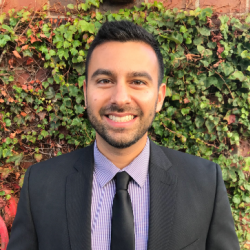
Critical Perspectives among Latino Male Teachers: Centering New Voices and Conceptual Frameworks in Research with Men of Color Educators
In recent years, there has been a tremendous effort to recruit and retain more men of color into the teaching profession. While these efforts remain widely popular, emerging critiques challenge deficit logics that frequently posit men of color as the patriarchal saviors and fixers of problematic boys of color. Furthermore, critical race scholars have critiqued the ways the catch-all category “men of color” lacks specificity and forfeits a more robust analysis of race and racism. This research project is designed as a qualitative case study exploring the life histories and professional experiences of Latino male teachers from non-dominant backgrounds. It is designed as a life-history narrative inquiry and will utilize a three-phase interview regimen. As a particularistic case study, the study’s purposeful sampling brings Indigenous, queer, critical, and Black Latino male voices to the fore. Furthermore, the conceptual framing of this project offers an intersectional and relational approach to the study of race, gender, and sexuality. The objectives of this research are to a) explore the lives and experiences of Latino male teachers—a teacher population rarely studied in isolation, and b) deconstruct the heterogeneity of the grouping “Latino male teachers,” with specific attention to interlocking system of oppression. Overall, this study centers new voices and conceptual frameworks in the conversation surrounding men of color teachers with the hope of paving new, justice-oriented avenues of research.
